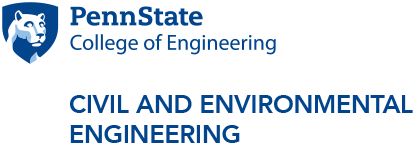Graduate Course Information
Potential CE Courses
- CE 410: Sustainable Residential Subdivision Design
- CE 423: Traffic Operations
- CE 435: Foundation Engineering
- CE 436: Construction Engineering Materials
- CE 441: Structural Design of Foundations
- CE 462: Open Channel Hydraulics
- CE 479: Environmental Microbiology for Engineers
- CE 497-001: Ecological Engineering
- CE 512: Soil Mechanics II
- CE 525: Transportation Operations
- CE 536/GEOSC 536: Topics in Biogeochemistry (2 credits)
- CE 538: Earthquake Resistant Design of Buildings
- CE 539: Approximate Methods of Structural Analysis
- CE 561: Surface Hydrology
- CE 570: Environmental Aquatic Chemistry
- CE 573: Environmental Organic Chemistry
- CE 576: Environmental Transport Processes
- CE 582: Pavement Design and Analysis
- CE 590: Colloquium (1 credit)
- CE 591: Environmental Engineering Seminar (1 credit)
- CE 592: Environmental Engineering & Science Topics (1 credit)
- CE 597-002: Human Factors
- CE 597-005: Nondestructive Testing
- CE 597-007: Nonlinear Structural Analysis
- CE 597-008: Computational Modeling - OpenFoam
- CE 597-009: Traffic Operations on Highways and Urban Networks
- CE 597-010: Public Transportation Systems
Potential Electives
- AE 401: Design of Steel and Wood Structures for Buildings
- AE 402: Design of Concrete Structures for Buildings
- AE 404: Building Structural Systems in Steel and Concrete
- AE 430: Indeterminate Structures
- BE 464: Bioenergy Systems Engineering
- BE 467: Design of Stormwater and Erosion Control Facilities
- BMB 401: General Biochemistry
- BRS 422: Energy Analysis in Biorenewable Systems
- CHE 430: Chemical Reaction Engineering
- CHE 438: Bioprocess Engineering
- CHE 452: Chemical Process Safety
- CHEM 402: Chemistry in the Environment
- CHEM 448: Surface Chemistry
- CMPSC 431: Database Management Systems
- CMPSC 461: Programming Language Concepts
- ECLGY 510: Classical Ecology
- EGEE 441: Electrochemical Engineering Fundamentals
- EMCH 461: Finite Elements in Engineering
- EMCH 471: Engineering Composite Materials
- EMCH 524A: Mathematical Methods in Engineering
- EMCH 540: Introduction to Continuum Mechanics
- EMCH 560: Finite Element Analysis
- EME 500/ME 560: Solid Mechanics
- EME 581: Research and Geostatistics Methods
- ENVSE 404: Surface and Interfacial Phenomena in Environmental Systems
- ERM 435: Limnology
- ERM 447: Stream Restoration
- GEOSC 405/SOILS 405: Hydropedology
- GEOSC 409: Geomicrobiology
- GEOSC 508: Mechanics of Earthquakes and Faulting
- IE 433: Regression Analysis and Design of Experiments
- IE 434: Statistical Quality Control
- IE 505: Linear Programming
- IE 516: Applied Stochastic Processes
- MATH 405: Advanced Calculus for Engineers and Scientists I
- MATH 415/STAT 415: Introduction to Mathematical Statistics
- MATH 418/STAT 418: Introduction to Probability and Stochastic Processes for Engineering
- MATH 455: Introduction to Numerical Analysis I
- MATSE 430: Materials Characterization
- MATSE 436: Mechanical Properties of Materials
- ME 461: Finite Elements in Engineering
- ME 597-001: Academic Writing
- METEO 454: Introduction to Micrometeorology
- MICRB 401: Microbial Physiology and Structure
- MICRB 450: Microbial/Molecular Genetics
- SOILS 420: Remediation of Contaminated Soils
- STAT 461: Analysis of Variance
- STAT 462: Applied Regression Analysis
- STAT 463: Applied Time Series Analysis



